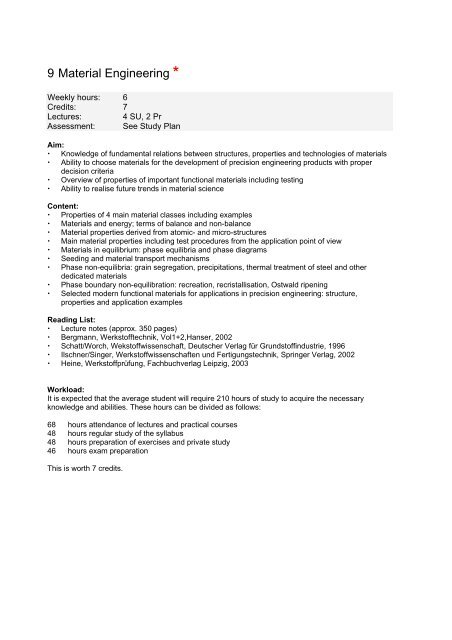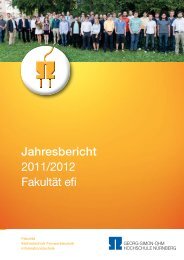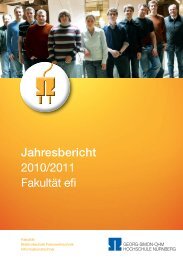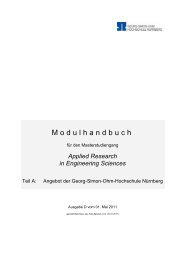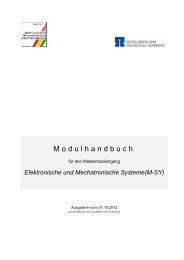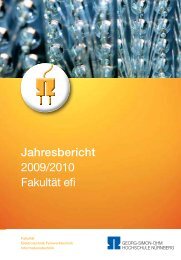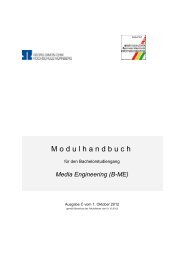Module descriptions Bachelor degree course - Elektrotechnik ...
Module descriptions Bachelor degree course - Elektrotechnik ...
Module descriptions Bachelor degree course - Elektrotechnik ...
Create successful ePaper yourself
Turn your PDF publications into a flip-book with our unique Google optimized e-Paper software.
9 Material Engineering *<br />
Weekly hours: 6<br />
Credits: 7<br />
Lectures: 4 SU, 2 Pr<br />
Assessment: See Study Plan<br />
Aim:<br />
� Knowledge of fundamental relations between structures, properties and technologies of materials<br />
� Ability to choose materials for the development of precision engineering products with proper<br />
decision criteria<br />
� Overview of properties of important functional materials including testing<br />
� Ability to realise future trends in material science<br />
Content:<br />
� Properties of 4 main material classes including examples<br />
� Materials and energy; terms of balance and non-balance<br />
� Material properties derived from atomic- and micro-structures<br />
� Main material properties including test procedures from the application point of view<br />
� Materials in equilibrium: phase equilibria and phase diagrams<br />
� Seeding and material transport mechanisms<br />
� Phase non-equilibria: grain segregation, precipitations, thermal treatment of steel and other<br />
dedicated materials<br />
� Phase boundary non-equilibration: recreation, recristallisation, Ostwald ripening<br />
� Selected modern functional materials for applications in precision engineering: structure,<br />
properties and application examples<br />
Reading List:<br />
� Lecture notes (approx. 350 pages)<br />
� Bergmann, Werkstofftechnik, Vol1+2,Hanser, 2002<br />
� Schatt/Worch, Wekstoffwissenschaft, Deutscher Verlag für Grundstoffindustrie, 1996<br />
� Ilschner/Singer, Werkstoffwissenschaften und Fertigungstechnik, Springer Verlag, 2002<br />
� Heine, Werkstoffprüfung, Fachbuchverlag Leipzig, 2003<br />
Workload:<br />
It is expected that the average student will require 210 hours of study to acquire the necessary<br />
knowledge and abilities. These hours can be divided as follows:<br />
68 hours attendance of lectures and practical <strong>course</strong>s<br />
48 hours regular study of the syllabus<br />
48 hours preparation of exercises and private study<br />
46 hours exam preparation<br />
This is worth 7 credits.


